QuestionMy question relates to house training & animal behavior. I am thinking about adopting a 3 yr old dog that is currently house trained.
Our previous dogs were unfortunately not house trained and had numerous accidents in the house, in particular areas. It has been well over 10 years since a dog has been in the house.
Will this new dog be attracted to the areas where our previous dogs had their accidents? Adopting a dog that is housetrained is very important to us, but if the dog is going to be attracted to old smells, then we will need to be prepared for the situation.
Any information or advice that you can provide would be greatly appreciated!
AnswerTen years is a long time, BUT...the dog's sense of smell is most likely 200 times greater than ours. It's not uncommon for a dog to return to a spot formerly marked by another dog. I don't know where these areas in your household are, but I can tell you from personal experience (I've had up to 8 dogs at a time in my house, many were rescues that had several 'accidents' at various times) that reinforcing appropriate elimination (with praise and reward) WORKS. I have never had any dog persistently urinate or defecate in my home after house training, even when the scent was most likely still present to the dog (after deodorizing and cleaning by me so the scent wasn't apparent to humans.)
I don't know where you're adopting this dog. If it's from a shelter (even a no-kill humane society), no one can determine whether or not a dog is house trained from its behavior in a kennel. Most dogs will NOT eliminate in the kennel (keeping their immediate living space clean) but will (at large in a house) make mistakes. If you're adopting from a private party, remember: people LIE (sad, but true.) VERY few people give up a dog for no reason at all. The big reason of choice is: "we're moving and we can't take the dog", the second is "The baby is allergic." These are usually euphemisms for "The dog is doing something we don't like, we don't know how to change it and we don't care to try." Even a dog that is reliably housetrained may make mistakes in a new home. A totally new environment, the stress of habituating to a new household and new people, and perhaps not having been completely house trained to begin with, can all result in mistakes. You have to be prepared, expect accidents, be patient and very, very vigilant. Here's how to do it:
Introduce the dog to your BACKYARD first. WAIT until he eliminates BEFORE bringing him indoors. Praise him and reward him when he eliminates outdoors, tell him what a VERY GOOD BOY he is. When you bring him indoors, put him on long, lightweight house leash. Keep him (literally) tied to you for the first few days. Observe him very closely: if he sidles up to furniture or walls, clap your hands to distract him before he lifts his leg (if female, watch for circling, but males, even neutered, are more likely to mark in this way.) Once distracted, take him BACK outdoors and wait for him to urinate, then praise and reward. Maintain this umbilical cord as long as necessary (up to 2 weeks is not too much.) This will give the dog the clear signal that this is not his domain so he need not mark it; it will also keep him out of trouble until you determine who he is and what he's all about; it will make it easier for you to run him outdoors to eliminate, and it will promote you psychologically.
During this breaking in period, take him out often. At age three, he can very easily do with four outings a day but NOT in the beginning because you are reestablishing house training. Take him out every three hours, praise and reward his elimination; give him ample opportunity to do his thing. This can be frustrating but it PAYS OFF because the dog learns what you want, what happens when he does it, and that he will be given fair and ample opportunity. If you are unable to observe him indoors, put him in an area where an accident won't make much difference (the kitchen.)
Most importantly, don't dote on this dog emotionally. You'll be setting up for separation anxiety. Give him a fair amount of attention but ignore him regularly (even on the umbilical cord); you can begin a simple course of training for "sit" (but use ANOTHER word) and ask him to "sit" for food and attention for a few days. Love him all you want and make him part of your household, but maintain some emotional distance (this creates a clear message in the dog that this is your territory and prevents over bonding.) When you leave the house, don't say "goodbye" to the dog (that's human culture, not dog culture.) When you return, wait a few seconds before greeting him. IF you find a mess somewhere, IGNORE IT. Be fair, be consistent, be patient, be the "leader", and your new dog will become a devoted companion.

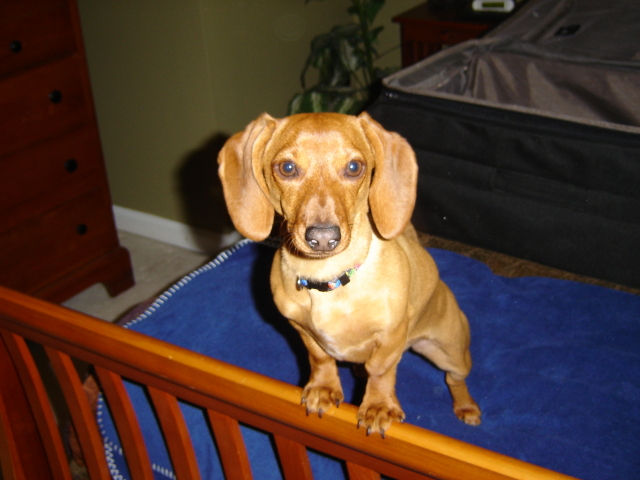 Mini Daschund with anxiety issues
QuestionAbigayle
QUESTION: I have a 3 1/2 yr old
Mini Daschund with anxiety issues
QuestionAbigayle
QUESTION: I have a 3 1/2 yr old
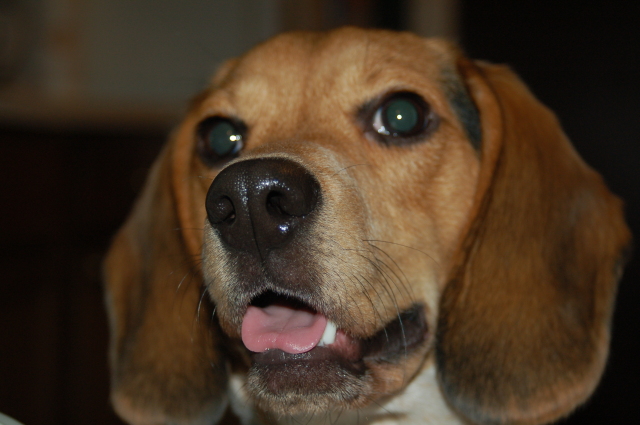 uncontrollable beagle
Question
max
My beagle is a year and a half. Ive had hi
uncontrollable beagle
Question
max
My beagle is a year and a half. Ive had hi
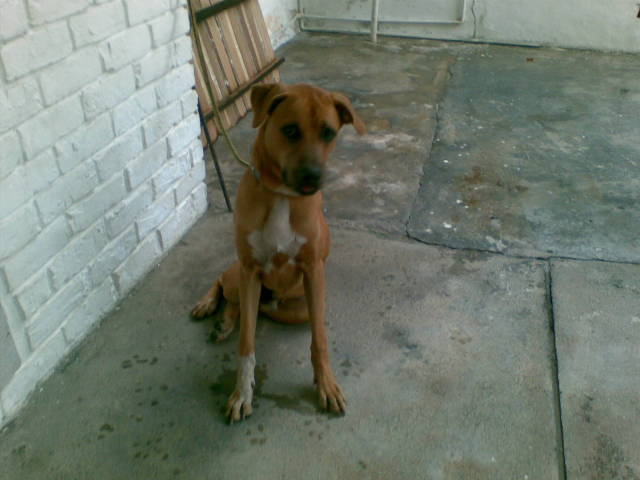 dogs behaviour
QuestionMy 8 months old Dusto
QUESTION: My puppy
dogs behaviour
QuestionMy 8 months old Dusto
QUESTION: My puppy
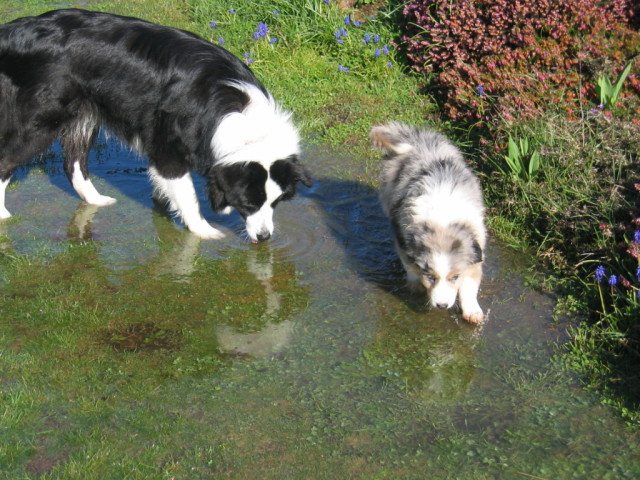 Dog in Heat?
QuestionLily and Jorge
QUESTION: Hello,
We have
Dog in Heat?
QuestionLily and Jorge
QUESTION: Hello,
We have
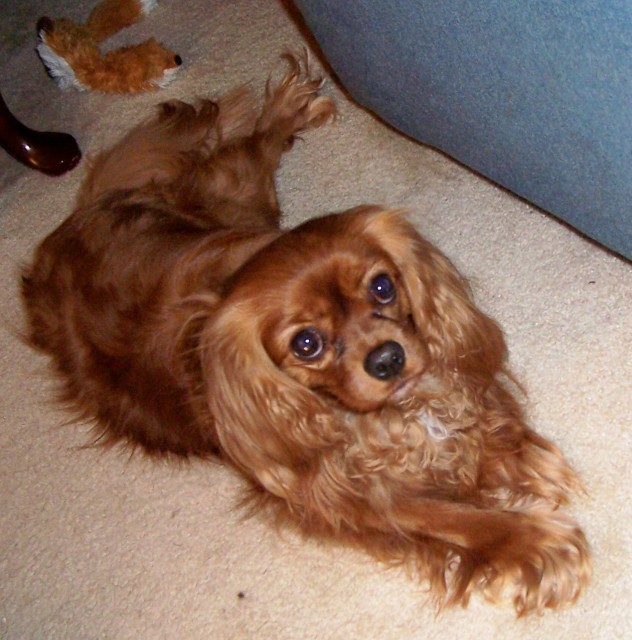 Dog light and shadow chasing
Question
Jenni
My 3 year old Cavalier King Charles Span
Dog light and shadow chasing
Question
Jenni
My 3 year old Cavalier King Charles Span